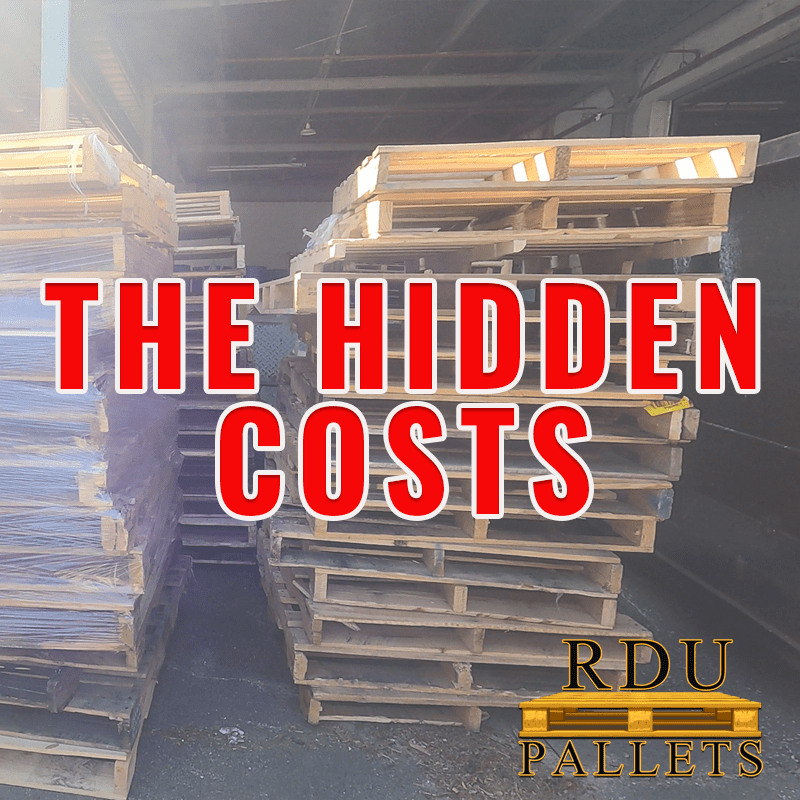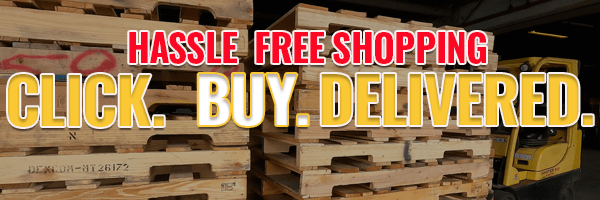In this article we will discuss the cons of dealing with pallet brokers. In the logistics and supply chain industry, wood pallets are a vital asset, aiding the movement of cargo efficiently and safely. As such, businesses often depend on pallet brokers to obtain these pallets, aiming to simplify operations and cut costs.
However, under the surface, dealing with pallet brokers can show a range of cons that businesses need to navigate carefully. From quality concerns to financial chances, here’s an assessment of the downsides associated with retaining pallet brokers.
Cons of Dealing with Pallet Brokers
Quality Control Challenges:
Pallet brokers typically act as middlemen between pallet suppliers and buyers. This middleman role can lead to quality control issues. Since brokers often find pallets from various suppliers, there’s a lack of uniformity in terms of pallet condition.
Accordingly, businesses may get pallets of varying conditions, leading to potential safety dangers and operational inadequacies. Lacking direct management of the pallet sourcing process, sustaining quality standards becomes a significant task.
Limited Customization Options:
Businesses often have detailed requirements concerning pallet size, material, and design to line up with their sole supply chain requirements. However, buying from pallet brokers may limit customization choices. Brokers typically offer pallets from existent inventory, which may not always match the exact specifications required by the buyer. This constraint can impede optimization efforts inside the supply chain, ensuing poor performance and increased costs in the future.

Difficult Pricing Structures:
Pallet brokerage businesses may not have transparent pricing structures, making it difficult for businesses to review the true cost of pallet purchases. Brokers may add various hidden fees and markups into their pricing models, which are not always transparent to the buyer.
This lack of transparency can lead to unexpected expenses and difficulties in planning effectively. Without a clear estimation of the pricing dynamics, businesses risk overpaying for pallets and wear down their profit margins.

Dependency Risks:
Trusting closely on pallet brokers for the buying of wood pallets can expose businesses to dependence risks. Since brokers control the supply chain of pallets, any interruptions or changeability in their operations can directly impact the accessibility and cost of pallets for buyers.
Furthermore, businesses may encounter challenges in finding pallets independently if they become too dependent on broker-facilitated outlets. This reliance weakens the flexibility and strength of the supply chain, leaving businesses weak to market unpredictability.
Limited Liability:
Dealing with pallet brokers may involve a lack of accountability in solving issues associated with pallet quality, delays in delivery, or disputes. Unlike direct relationships with local pallet suppliers, where businesses can hold pallet suppliers responsible for any flaws, brokers may not hold the same level of responsibility. Resolving issues or getting remedy becomes more complicated when transactions involve middlemen. This lack of liability can drain business relationships and compromise trust within the supply chain network.

Hidden Environmental Impacts:
Pallet brokerage services can have concealed environmental effects that businesses may ignore. Brokers may rank cost and convenience over sustainability concerns, leading to the increase of single-use or low-quality pallets that add to waste production and resource depletion.
Furthermore, the complicated logistics involved in brokering pallets, including transportation and storage, can result in extra carbon emissions and environmental ruin. Businesses need to consider these environmental effects when connecting with pallet brokers.
In conclusion, while pallet brokers offer convenience and access to pallets, businesses must thoroughly consider the cons related with this arrangement. From quality control disputes to unclear pricing structures and environmental effects, crossing the pitfalls of dealing with pallet brokers requires thoroughness and strategic planning. Businesses should explore different pallet sourcing tactics and foster transparent relationships with local pallet suppliers to alleviate risks and improve their supply chain operations in the long term.






0 Comments
Leave a comment